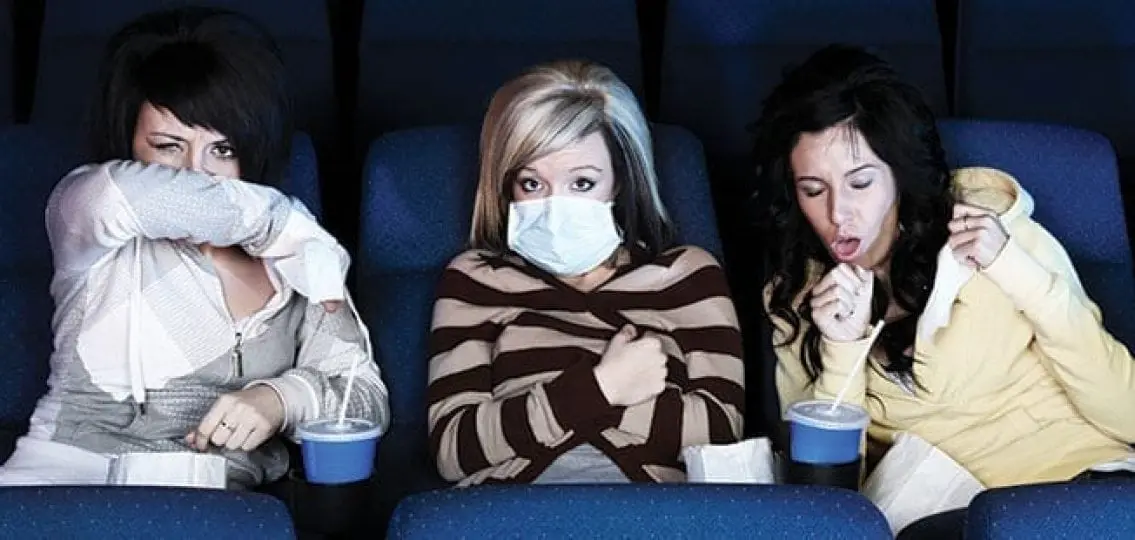Teenagers seem to be ground zero for many of the most contagious viruses and infections, spreading them to friends, teammates, and family members. What is that weeping splotchy thing on your son’s elbow, and is it contagious? Is Pink Eye contagious? What are the most common things teens catch, and what should your teen know about prevention and staying healthy? We asked Dr. Jennifer Trachtenberg, a pediatrician and parenting expert, for advice.

Is Pink Eye Contagious?
Q: Let’s start with skin infections. What’s the common culprit?
Trachtenberg: Staph is one common skin infection that is caused by Staphylococcus bacteria. Most people already have these bacteria present on their skin and never develop infections. But teens are susceptible to this kind of infection because they live in close physical proximity to each other. Locker rooms, weight rooms, contact sports. Bacteria can spread easily through cuts, abrasions, and skin-to-skin contact. This is including in the locker room through sharing towels, uniforms, razors, or equipment. Infections usually look like a rash of oozing little blisters or red bumps that develop a golden yellow, gooey crust. The blisters can be itchy and painful.
Treatment for staph infections is usually a topical antibiotic cream. But if the rash has spread and become systemic, then an oral antibiotic may be prescribed. For prevention, the best practice is to avoid sharing towels, clothing, and sports equipment. Also, make sure that you wipe down exercise equipment.
Q: Is pink eye contagious? Poor Bob Costas showed us all how contagious that can be when he hosted the Olympics at Sochi.
Trachtenberg: Pink eye, or conjunctivitis, is an infection of the eyes that is very contagious. Usually the eye is red with a thick, mucous-like discharge. This can cause the eyelid to become crusty and difficult to open.
Viral conjunctivitis usually presents a clear, watery discharge in both eyes. Like any other virus, there isn’t any medical treatment other than cool compresses and wiping the eye with a cotton ball dipped in water. For bacterial pink eye, one eye will be red and infected, and it will then spread to the other eye. Antibiotic eye drops usually clear up bacterial conjunctivitis, and after 24 hours the patient will no longer be contagious and may resume normal activities. Good, thorough hand-washing is the best way to avoid getting pink eye.
Are Fungal Infections Contagious?
Q: What about fungal infections?
Trachtenberg: Fungus grows in dark, moist environments such as showers, locker rooms, and wet towels that get reused. Fungal infections, or ringworm, will usually appear as a round, scaly circle that spreads as an itchy, red, raised rash. It’s kind of a misleading term because it has nothing to do with worms. A common fungal infection is athlete’s foot. Is it contagious? Yes, very. It can be caused by sweating a lot, not drying your feet well after showering or exercising, or warm weather. Symptoms may include a whitening of the skin between the toes, scaly skin on the feet, an itchy rash, or even blisters on the feet. Another fungal infection is jock itch, which teen athletes can develop in warm weather conditions where they sweat a lot. Symptoms are red, ring-like patches in the groin area, itching and pain in the groin.
For treatment, there are anti-fungal over-the-counter creams and sprays that contain the active ingredient Clotrimazole. The best way to prevent fungal infections is with good hygiene, washing towels, showering after exercise, and airing out shoes and equipment.
Q: What about sexually transmitted infections?
Trachtenberg: From the age of 12 on up, I discuss STIs with my patients, both alone and with their parents. We know that teens can be promiscuous and experiment with sexuality. They need to know that they can be infected without sexual intercourse. Activities such as touching, petting, and oral contact carry the risk of infection.
Symptoms of an STI may include pain while urinating, pelvic pain, an unusual discharge, or a change in periods. There may be a cold sore on the lips or a sore on the genitals that is painful. If your daughter is on birth control pills, she needs to know about condoms and preventing STIs. For STIs such as chlamydia, there may be no symptoms at all. So it’s important for teens to have preventative visits every year if they have a history of sexual engagement. Human papillomavirus, or HPV, causes genital warts and cervical cancer. The HPV vaccine currently covers nine strains of HPV, but not all of them.
Even if your teen rolls their eyes when you bring it up, do it anyway. Talk about prevention and condoms. If your daughter is on birth control pills, she needs to know about condoms and preventing STIs. They need to hear over and over again the facts about the risks of sexually transmitted infections and disease, and how it may affect fertility as they get older.
Q: What should teens know about mononucleosis, the so-called “kissing disease”?
Trachtenberg: “Mono” is caused by the Epstein-Barr virus. Symptoms may vary, including fever, sore throat, swollen glands, fatigue that is more than normal, headache, or flu-like symptoms that don’t improve. Many teens wait to see their physician because they keep thinking that they will get better. But they don’t get better. And all the while, they continue to attend school and participate in their normal activities and come into contact with classmates and friends.
There is a rapid test your doctor can perform in the office and a blood-work test that usually gets sent out to a lab to confirm a diagnosis of mono. The good news is you can only catch mono once, though in some rare cases you can have a recurrence. Teens need to know, however, that mono can present complications. Although they’re not permanent, they can be very serious for some people. First, patients who develop an enlarged spleen must avoid contact sports where there is the risk of abdominal injury. An enlarged spleen can rupture and present very serious complications. Second, mono can elevate your liver enzymes. Teens need to be very careful about consuming alcohol, which can be toxic to the liver and exacerbate liver damage if their enzymes are already elevated.

Treatment for mono is supportive, meaning we try to relieve discomfort with lots of rest, fluids, fever, and pain-reducing medicine. If the tonsils are enlarged, then a physician may prescribe steroids to shrink them. The patient should get on a daily schedule of additional rest. As for prevention, limit sharing food, utensils, drinking out of the same straw, or water bottles. Really, anything that puts you into close contact with body secretions. And wash your hands frequently.




